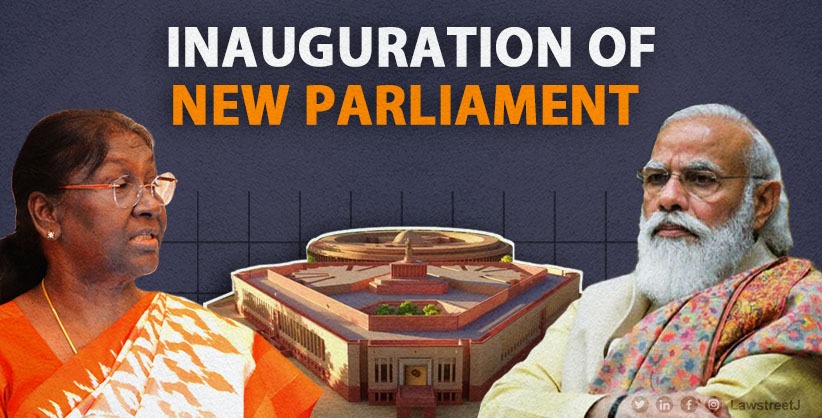NEW DELHI: The Supreme Court on Friday refused to consider a PIL for issuing a direction to the Lok Sabha Secretariat for inauguration of the new Parliament building by the President of India.
The building is proposed to be inaugurated by Prime Minister Narendra Modi on Sunday, May 28.
A vacation bench of Justices J K Maheshwari and P S Narasimha declined to entertain the matter.
After failing to impress upon the court, petitioner advocate withdrew his plea, prompting the court to treat the matter "dismissed as withdrawn".
In his arguments, Sukin tried to stress upon the role of the President saying she is head of the Parliament.
The court, however, asked him how her role was related to inauguration of the building.
In his plea, the petitioner claimed the Lok Sabha Secretariat violated the Constitution by not inviting the President for the inauguration of the new building.
The plea said President is first citizen of India and head of the institution of Parliament. Indian Parliament consists of the President of India and the two Houses of the apex legislature, the Rajya Sabha and Lok Sabha.
"All important decisions regarding the country are taken in the name of Indian President, though most of these are on advice given by Council of Ministers (CoM), as per Article 74 of Indian Constitution," it said.
Under Article 85, the President can summon each House of Parliament to meet at such time and place as he thinks fit, it added.
"The statement issued by the Lok Sabha Secretariat on May 18 and invites issued by Secretary general, lok Sabha about inauguration of the new Parliament building is issued an arbitrary manner without proper perusal of the records and without proper application of mind," Sukin said in his plea.
Highlighting the importance of the office of the President of India, he said it is authorised to appoint constitutional functionaries such as governors, judges of both Supreme Court and high court, Comptroller and Auditor General of India, chairman and members of Union Public Service Commission, chief election commissioner, financial commissioner, and other election commissioners.
The main function of both the Houses is to make laws. Every Bill has to be passed by both the Houses and assented to by the President before it becomes law, it said.
The petitioner also said the power of the Indian democratic system manifests in Parliament, which weathered the Indian freedom struggle from colonial rule and witnessed many historical milestones.
"The existing building served as independent Indias first Parliament and witnessed the adoption of the Constitution of India. Thus, conserving and rejuvenating the rich heritage of the Parliament building is a matter of national importance. An icon of Indias democratic spirit, the Parliament building sits at the heart of the Central Vista. Indias present Parliament House is a colonial-era building designed by British architects Sir Edwin Lutyens and Herbert Baker, which took six years to construct (1921-1927)," the plea said.














